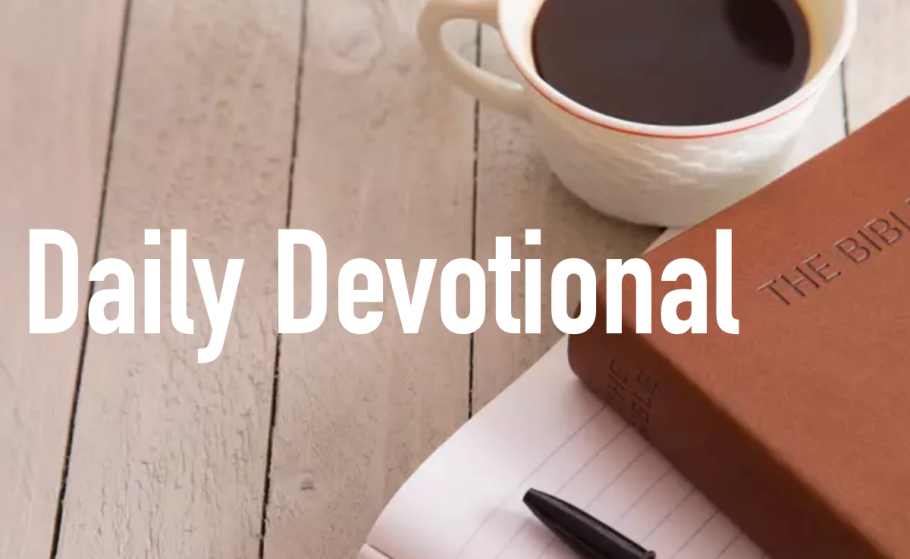
Moody professor Jim Coakley, in his award-winning book 14 Fresh Ways to Enjoy the Bible, analyzed Joseph’s clothing in Genesis 37-45: “Clothes/ garments are a pivotal element throughout the Joseph narrative...They appear at key transition points in the account when his status changes positively or negatively.” Every major plot change in the story is marked by a change in clothing.
Joseph’s story begins with a “coat of many colors,” as I learned through many Sunday School illustrations. Translators, though, are not sure of the exact meaning. The NIV says Joseph’s robe was “ornate” (v. 3). Another translation says “beautiful.” Others say “special tunic,” “vari-colored tunic,” “robe with long sleeves,” or “elaborately embroidered coat.” Some still have “robe of many colors.”
In any case, this special robe was a gift to Joseph from his father, Jacob, and a clear sign of parental favoritism (v. 3). You may think that Jacob should have known better. Predictably, the robe prompted envy and even hatred from his brothers (v. 4). Joseph, young and immature, did nothing to soften this reaction. Instead, he further stirred up his brothers’ feelings by bringing his father a bad report (v. 2) and sharing his dreams (vv. 5–11).
Joseph’s “ornate robe” makes two more key appearances in this story. First, his brothers stripped it off him before throwing him into a cistern (v. 23). Their initial plan was to murder their brother, though they ended up “only” selling him into slavery. They also dipped the robe in goat’s blood as a prop for their lie to Jacob (vv. 31–33), who concluded that a wild animal had killed his beloved son.
Despite all these tragic events, God remained in control. He had a loving plan for Joseph, Jacob’s family, and the Ancient Near Eastern world.
In what ways has sin marred your own family or relationships? How might you as a follower of Christ live redemptively in or even despite difficult situations?
Almighty God, we praise You that You are near to us. Your mercy never fails. You had a loving plan for Joseph and for Jacob’s whole family, and we trust that You have a plan for our lives as well. Bless Your holy name!

As an English teacher in China, my (future) wife Julia attended a banquet hosted by her university. There the leaders urged her to sample a local specialty—fried silkworms. To refuse would have been rude, so she put on a smile and downed part of one of these unusual delicacies. How did it taste? No comment.
Given his diet of locusts and honey, John the Baptist would likely have enjoyed the fried silkworms more than Julia did. In addition to his unusual diet, a distinctive of John’s ministry was his clothing, made of camel’s hair with a leather belt around his waist. Camel’s hair was rough and uncomfortable. Wearing it evoked poverty and simplicity and reminded people of Elijah (see 2 Kings 1:8). John wanted no one to think that he sought to obtain followers or riches (see Luke 7:25).
John the Baptist’s core message was: “Repent, for the kingdom of heaven has come near” (v. 2). His appearance and lifestyle reinforced this idea. In God’s plan, his role was to be the forerunner prophesied by Isaiah, preparing the way for the Messiah (v. 3). The best way for people to prepare would be by turning from sin and purifying their hearts. His audience confessed their sins and were baptized (v. 6). In that context, baptism was a sign of commitment to change their lives in accordance with their repentance.
John also prophetically rebuked the Pharisees and Sadducees (vv. 7–10). Why were they there? Out of curiosity As religious tourists? Because John was “trending”? They were “vipers.” Given that they had failed to “produce fruit in keeping with repentance” (v. 8), they had an even greater need to turn from their sin, although most did not do so. The Messiah will one day separate the wheat from chaff (vv. 11–12)!
Is the “fruit” of your life “in keeping with repentance”? Or, as other translations put it, “consistent with repentance” or “worthy of repentance”? Does your life show that you’ve turned away from sin?
Merciful Lord, today we join the prayer of King David: “Create in me a pure heart, O God, and renew a steadfast spirit within me. Restore to me the joy of your salvation and grant me a willing spirit, to sustain me” (Ps. 51:10, 12).

When I was a child, my gift-giving was very predictable. I always bought Old Spice for my father. Old Spice cologne. Old Spice shaving cream. Old Spice soap on a rope. He graciously responded each time with surprise and delight. For me, the smell of Old Spice would forever be linked to my father.
The people in today’s story had distinctive smells as well. In fact, Esau’s scent became part of his brother Jacob’s plan to deceive their father, Isaac. Normally, the father’s blessing would be given to the firstborn son, to Esau, even though God had said, “The older will serve the younger” (Gen. 25:23). Their mother, Rebekah, wanted her favorite child (see Gen. 25:28), Jacob, to receive that blessing.
So Rebekah and Jacob came up with a plan centered around food, clothing, and scent! Jacob would wear his brother’s clothing, thereby smelling like Esau (Gen. 27:15). The goatskins would mimic Esau’s hairiness (v. 16). Rebekah cooked a meal to trick her husband into thinking it was freshly caught game (v. 14). This plan could work because Isaac, nearly blind, would be relying on his other senses, namely smell, hearing, taste, and touch.
When Jacob came before him, Isaac was suspicious because the voice sounded like Jacob’s. But the goatskins did their work (vv. 22–23), as did Esau’s clothing (v. 27), and the deception proved successful. Jacob received the blessing (vv. 28–29).
Esau proved himself to be “godless” by trading away the blessing for a single meal (Heb.12:16–17). Although the blessing rightly belonged to Jacob at this time, Jacob and Rebekah resorted to deception, instead of waiting for God to bring it about. Old Testament scholar Derek Kidner observed that all the parties in this story “are almost equally at fault.”
Have you ever been tempted to “help” God’s cause by taking matters into your own hands? How might Rebekah and Jacob have demonstrated trust instead?
Dear God, reading about all the deception in Jacob’s household makes us examine our own lives. Lord, help us avoid lies and deception at all costs! May we live with love, wisdom, honesty, and justice before You.

In Ecclesiastes, the Teacher has emphasized a few key points in his Genesis-shaped discussion of life. First, this life is marked by vanity or futility; it has been turned upside down because of sin. Sometimes there is wickedness in the place of righteousness; sometimes the fastest runner doesn’t win the race; sometimes the wicked prosper and the righteous suffer. This “upside-downness” may tempt us to despair, but the Teacher tells us how to thrive in this sin-riddled world. Second, God has given us many things to enjoy. These gifts point us back toward the garden of Eden and forward to the Marriage Supper of the Lamb. Enjoying God’s gifts brings a small taste of life before sin and life when sin no longer reigns.
Third, our lives must be lived in relationship with God. In verse 13 we read that fearing God and keeping His commandments is the “whole duty of all mankind.” The word “duty” is absent in the original Hebrew text. Translators have supplied that word to try to make sense of what the Teacher is saying. In Hebrew he says that “the whole” or “the all of humanity” is fearing God and keeping His commandments. It is not our duty to be in relationship with God; it is our whole. It’s what it means to be human.
Genesis 1 teaches that all humans are created in God’s image, created to live in a relationship with Him as his co regents on planet Earth. We sinned and were expelled from His presence, but God did not abandon us. No, He worked to re-establish our true purpose of loving Him. He did this in many ways throughout the Old Testament, and in the New, He inaugurated the new covenant in the blood of His Son, Jesus—the only way to have forgiveness of sins and restored relationship with God.
Are you living as a whole human being? Or is something crucial missing in your life? If you haven’t trusted in Jesus, do so today!
Lord, thank You for your covenant love and never-ending faithfulness! Your love reaches to the farthest, hidden corners of our lives. Search our hearts and show us where we need Your forgiveness and Your mercy. Amen

Do you fear death? The fear is understandable, given that ten out of ten people die. Not only will we face death, but everyone we love is in the same predicament. As the author of Ecclesiastes says, we “all share a common destiny—the righteous and the wicked, the good and the bad” (v. 2). Everyone, whether rich or poor, famous or ordinary, will die in the end.
In Ecclesiastes 9:1–6 the Teacher gives voice to what many of us may have thought before: “This is the evil in everything that happens under the sun: The same destiny overtakes all” (v. 3). This passage is difficult to understand, particularly since Christians today have the benefit of the New Testament, which clearly teaches the resurrection of the dead and eternal life for those who trust in Jesus (John 11:25; Acts 24:15; 1 Cor.15:12, 42).
Does Ecclesiastes contradict the New Testament? I don’t think so, for a few reasons. First, even though the Teacher expresses his frustration that death is the great equalizer, he has repeatedly expressed his faith in God and highlighted the importance of living in relationship with Him.
Second, the concept of progressive revelation teaches that as time progressed, God more fully revealed Himself in Scripture. Thus, Ecclesiastes does not contradict the resurrection of the dead, because God had not yet fully revealed that truth. Now that we have the fuller revelation of Scripture, we can affirm even more fully the Teacher’s reflection on the “evil” of death as the great equalizer. In fact, death is so evil, so abhorrent to the Lord of life, that the Son died on the cross in order to conquer death and atone for sin. So we can agree with the Teacher, while also rejoicing that death has been defeated! “Where, O death, is your victory? Where, O death, is your sting?” (1 Cor. 15:55).
Go Deeper
Do you fear death? How might acknowledging the sting of death help you communicate the gospel to others?
Pray with Us: Loving Father, thank You for Your presence in our lives. In Christ, You see us and draw near to us with abiding love. Jesus, knowing that You are with us helps us overcome our fears, even fear of death.

